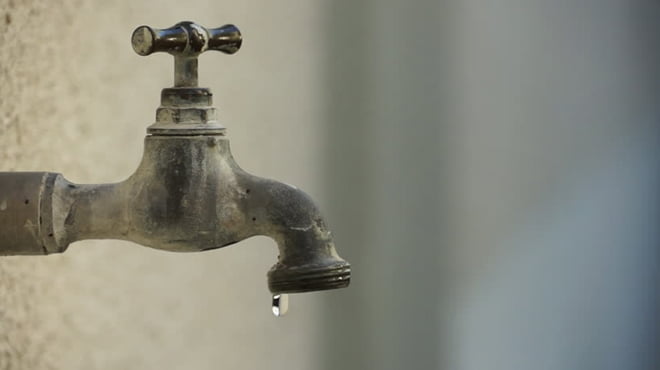The City of Cape Town has rolled out Phase One of its Critical Water Shortages Disaster Plan and pre-selected suburbs can expect dry taps during peak hours.
Water rationing through extreme pressure reduction is underway, the City said on Monday.
Under Phase One, pre-selected suburbs can expect water supply disruptions for short periods of time with outages likely to occur in the mornings and evenings.
The city’s mayoral committee member for water and waste services Xanthea Limberg advised affected residents to store five litres of water for essential use.
“The new normal requires us to adapt the way that we have been doing things, in all aspects of our lives,” Limberg said in a statement.
On Monday, city-wide water consumption stood at 607 million litres per day, compared to 618 million litres the previous week.
The City of Cape Town aims to keep water consumption below 500 million litres per day.
‘Save like a local’
Meanwhile, dam levels increased by 0.2% to 37.8%, compared to 37.6% the previous week.
At this time in 2016, dam levels stood at 62.1%.
In the Western Cape, dam levels were at 36% compared to 63% over the same period in 2016.
Limberg said the City of Cape Town will “shortly be launching one of its key initiatives”, calling on tourists and residents to “Save like a local”.
She said the awareness campaign will include airport billboards, branded flags in the CBD and Waterfront and mobile billboards on beaches and tourist centres.
The city also reached out to cellphone service providers to see how they can help spread awareness, Limberg said.
“We can expect a bumper [festive] season and we will need all visitors to save like a local and follow the example of many of our water ambassadors.”
Additional restrictions
Limberg, however, said permanent Capetonians remain the largest water consumers.
Additional restrictions and lower water usage targets will be put in place if required, she warned.
“Our experience shows that the local outflow of people over the festive season and the closure of some businesses and industry, such as the construction industry, mostly balances the inflow of local and foreign tourists.”
Meanwhile, Western Cape Local Government, Environmental Affairs and Development Planning MEC Anton Bredell said the provincial government met with Water and Sanitation Minister Nomvula Mokonyane last week to discuss several ongoing augmentation schemes.
“We had a productive meeting and I remain confident that all three spheres of government working better together can pull the province through this drought,” he said in a statement.
The provincial government said the Theewaterskloof dam stood at 27.6% on Monday, compared to 52.8% in 2016;the Voëlvlei Dam at 27.26% (2016: 71%); the Clanwilliam Dam at 40.37% (2016: 100%) and Brandvlei Dam at 33.22% (2016: 57%).
The local government, environmental affairs and development planning ministry is due to appear before Parliament’s water and sanitation committee during the course of the week, Bredell said.
